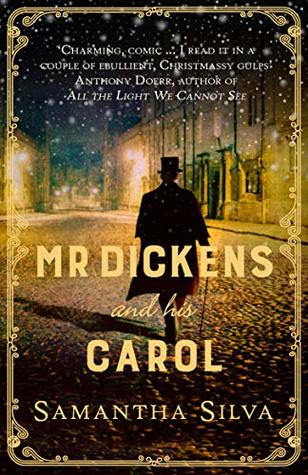More on this book
Community
Kindle Notes & Highlights
Like any man, he’d known a good share of knocks in his thirty-some years. Hard knocks at lesser doors,
And with fame came gentler taps at better doors,
Because there are times in a man’s life when no knock on any door will divert him from the thing at hand,
His legs, as they often did, twitched for elsewhere.
and set out for his great palace of thinking – the city of London itself.
even in the most unforgiving weather. The city forgave.
The night was as grim as Pluto. Dickens worried the dawn might never come.
The gentler light of day faded his low feeling and restored some mighty faith in the marvellousness of everything.
There was a going forward about them, as if life should be an ever-expanding affair – more children, a bigger house, better things.
‘And that every Christmas will be more splendid than the last.’
Books had always been the thing to save them.
no one should be a writer who could be anything better,
It was a rare silence between two men who relied on words to secure the necessities of life.
‘Catherine, our living has no relation to our means whatsoever.’
It was a scene often repeated between them: resistance, surrender, affection.
It was just the right weather for chasing phantoms about town. Everything was strange, and everyone a stranger.
Of course his feet would lead him here. Feet had memory, too.
‘And yet, the greater one’s living, it seems, the less one truly lives.’
He knew that every person was a fiery furnace of passions and attachments, unknown to every other.
But he couldn’t escape it. No matter how full his house, his dining table, his days, there it was again, the sense of being singular and separate from the world.
We are all players in the great pantomime of life!’
‘A door closes at times. Even between those who’ve loved well.’
for the truth at the bottom of every illusion, every fiction, every lie: our own great desire to believe.
‘I did always long to know worlds beyond my own.
‘For the second saddest thing in the world after a child who’s been abandoned,’ said Eleanor, ‘is the parent who abandons him.’
Then Charles Dickens began to write.
But he knew that the end of his book was a beginning of their life without him, and he must let them be born into the world, and welcomed, as he felt sure they would be.
It was strange to feel known by someone he’d met only a short time ago, who seemed to grasp his sum and parts.
‘It seems as if the book has rewritten itself,’ she said. ‘I think, more, the book has rewritten me.’
‘India,’ she repeated, each syllable a poem.
eyes that changed with each tilt of her gaze and became every blue that ever was, or no colour at all;
‘I wear the chain I forged in life,’
He was like every child in a toy shop, where hardships and fears fall away to make room for wonder.
The young boy’s chin was lowered, as if he somehow understood the intermingling of loss and hope, that only young children who have lost and hoped can know.
‘I guess Christmas begins in the heart after all.’


